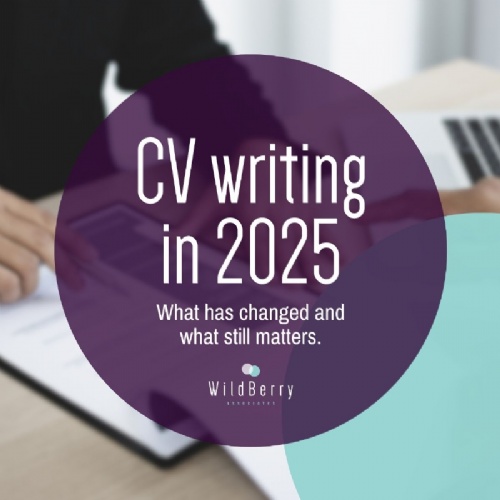CV writing in 2025

Applying for jobs in 2025 looks quite different than it did just a few years ago. Your CV must get past automated systems, grab the attention of hiring managers, and show not only what you’ve done but what you can bring to the role.
If you haven’t updated your CV recently, it might be time for a refresh. This guide will help you understand the key changes and what remains important when applying for jobs in 2025.
What’s new?
The rise of AI
Ensuring your CV has a good format and readability remains essential while job-hunting. While not all recruiters exclusively use Applicant Tracking Systems (ATS) or AI, some companies do rely on them to manage the high volume of applications they receive. ATS platforms typically scan CVs for relevant keywords and structure, so overly creative layouts or unusual fonts can risk being misread or overlooked.
Nowadays, AI is sometimes integrated into these ATS platforms, making them more advanced in how they assess CVs. AI can analyse language patterns and wording to assess the candidate’s suitability for a role, not only for the job but also the company culture.
That being said, recruiters still regularly review CVs manually, particularly in specialist sectors or roles where more particular experience and potential is required. A well-presented CV that clearly communicates your strengths remains just as important to human decision-makers.
Skills over tasks
Rather than listing all relevant duties you performed in your previous jobs, hiring managers are now more interested in what you can do and how you’ve used your skills to make an impact. By emphasising relevant skills and backing them up with examples or achievements, you can stand out more amongst the other applicants.
Transferable skills, such as problem-solving, customer service, or teamwork, are also invaluable as it shows you are adaptable and flexible.
Learn more about transferable skills in our blog 'Are transferable skills important in a job search?'.
Tips for writing your CV in 2025
While tools and trends have shifted, the basics still matter, but to really make an impact in 2025, here are our top tips:
Start with a strong personal statement
This is your first impression, so in 2-3 lines, sum up who you are, what you excel in, and what you’re looking for. This should be tailored for each new role you apply for, and show why you’re a good fit.
Focus on recent, relevant experience
Aim to keep your experience relevant and what you’ve done lately, as opposed to your full career history. Stick to the last 5-10 years, and highlight experience that matches the role.
Use clear, confident language
Make sure to use active language such as ‘delivered’, ‘managed’, ‘organised’, and ‘increased’, and avoid vague phrases like ‘involved in’ or ‘helped with’.
Quantify where possible
When possible, try to quantify your work, i.e. ‘reduced delivery times by 20%’, as this will make more of an impact.
Tailor every application
Review the job advertisement for keywords and adjust your personal statement, skills, and key experience to match the job description you are applying for.
Proofread, then proofread again
Spelling or grammar mistakes are an easy reason for rejection, and will be picked up straight away by Applicant Tracking Systems. If possible, ask someone to review it too.
CV writing might feel more complicated in 2025, but it doesn’t have to be overwhelming. With recruitment now shaped by AI, digital screening, and shifting employer expectations, understanding what’s new; such as skills-first formatting and keyword tailoring, can give you a real edge.
Get in touch today for career advice, and to get started with your job search!
